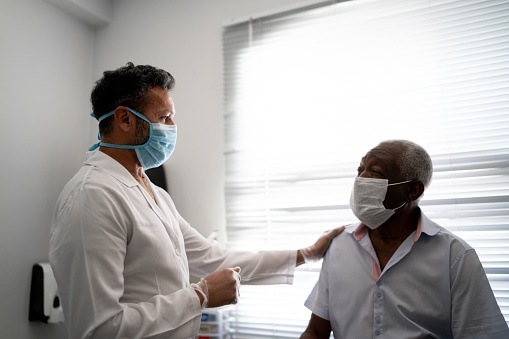Parsaclisib was clinically active in patients with relapsed/refractory (R/R) mantle cell lymphoma (MCL) who were previously treated with ibrutinib, according to results of the CITADEL-205 trial presented at the 62nd American Society of Hematology Annual Meeting & Exposition.
Researchers of the study, led by Pier Luigi Zinzani, MD, from the University of Bologna in Italy, assessed the objective response rate (ORR) associated with parsaclisib in adult patients with R/R MCL. Patients in this study had received a median of three prior systemic therapies, including ibrutinib.
The investigators assigned patients to once-daily parsaclisib 20 mg for eight weeks followed by either once-weekly 20 mg or once-daily 2.5 mg. Additionally, the researchers initiated prophylaxis for pneumocystis jirovecii pneumonia.
A total of 47 patients were treated in the study, but 70% of patients discontinued at time of data cutoff. Treatment discontinuation was primary due to progressive disease (62%). The median treatment exposure was 2.2 months, and the median age was 70 years. Most patients were men (79%) and had an Eastern Cooperative Oncology Group performance status score of 1 or more (85%).
After the median follow-up period of 10.2 months, the ORR in 46 patients evaluable for efficacy was 28.3% (95% confidence interval [CI], 16.0-43.5), whereas the complete response rate was 2.2%. Additionally, the median duration of response was 7.3 months (95% CI, 0.2 to not estimable) in responders. Overall, the median time to a complete or partial response was 7.6 weeks.
Also, the investigators found that the median overall progression-free survival in this population was 3.65 months (95% CI, 1.9-3.9).
The most common treatment-emergent adverse events (AEs) in the 47 safety-evaluable patients were anemia (19.1%), diarrhea (19.1%), neutropenia (14.9%), asthenia (12.8%), cough (12.8%), decreased appetite (10.6%), dyspnea (10.6%), fatigue (10.6%), pyrexia and rash (10.6%).
Serious treatment-related AEs that occurred in two or more patients included diarrhea, dyspnea, peripheral swelling, and pneumonia (4.3% each).







 © 2025 Mashup Media, LLC, a Formedics Property. All Rights Reserved.
© 2025 Mashup Media, LLC, a Formedics Property. All Rights Reserved.